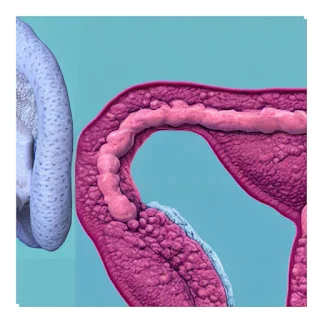Male infertility refers to a man's inability to impregnate a woman despite regular and unprotected sexual intercourse. Infertility affects around 15% of couples globally, with male infertility contributing to roughly half of these cases. Despite this, male infertility is often overlooked and undertreated.
The importance of addressing male infertility lies not only in the ability to conceive, but also in the potential underlying health issues that may be present. Male infertility can be a symptom of a larger medical condition, such as a hormonal imbalance or testicular cancer. By addressing male infertility, men can potentially identify and treat underlying health issues that may be impacting their overall well-being. Additionally, infertility can cause significant emotional distress for couples, highlighting the need for appropriate diagnosis and treatment.
Causes of Male Infertility
Male infertility can have various
causes, including medical conditions, lifestyle factors, and environmental
factors.
Medical conditions that can cause male infertility include:
Varicocele: a condition where the veins in the scrotum are enlarged, which can lead to decreased sperm quality and quantity
Infections: sexually transmitted infections (STIs) or other infections such as prostatitis or epididymitis can impact fertility
Hormonal imbalances: imbalances in hormones such as testosterone, follicle-stimulating hormone (FSH), or luteinizing hormone (LH) can affect sperm production.
Genetic disorders: conditions such as Klinefelter syndrome or Y chromosome deletions can cause infertility.
Lifestyle factors that can contribute to male infertility include:
Smoking: smoking can reduce sperm count and quality, as well as increase the risk of genetic abnormalities
Alcohol and drug use: excessive alcohol consumption and drug use can impact sperm production and quality.
Poor nutrition: a diet lacking in essential nutrients, such as vitamin C, zinc, and folic acid, can affect sperm health.
Obesity: being overweight can cause hormonal imbalances and reduce sperm quality
Environmental factors that can impact male fertility include:
Exposure to toxins: exposure to pesticides, heavy metals, and other toxins can harm sperm production and quality.
Radiation: exposure to high levels of radiation can cause genetic damage to sperm
Extreme heat: exposure to high temperatures, such as in hot tubs or saunas, can impact sperm production and quality.
Signs and Symptoms of Male Infertility
Male infertility can present with several signs and symptoms, which may include:
Difficulty with ejaculation: Difficulty in achieving or maintaining an erection during sexual activity, or difficulty in ejaculating, can be a sign of male infertility.
Low sperm count or abnormal sperm shape: A low sperm count or abnormal sperm shape (morphology) can impact fertility. A semen analysis can identify these issues.
Erectile dysfunction or loss of libido: Erectile dysfunction (ED) refers to the inability to achieve or maintain an erection during sexual activity. Low libido or a decrease in sexual desire can also be a sign of male infertility.
Pain or swelling in the testicles or scrotum: Pain or swelling in the testicles or scrotum may be a sign of a medical condition such as a varicocele or infection, which can impact fertility.
It is important to note that
some men with male infertility may not exhibit any noticeable symptoms.
Therefore, if a couple has been trying to conceive for more than a year without
success, both partners should seek medical advice.
Diagnosis of Male
Infertility
Diagnosis of male infertility typically involves a comprehensive medical evaluation and testing. The following are some common methods used to diagnose male infertility:
Medical history and physical examination: The healthcare provider will ask about the patient's medical history, sexual history, and lifestyle factors that may impact fertility. A physical examination will also be conducted to check for any abnormalities in the reproductive organs.
Semen analysis: Semen analysis is a laboratory test used to evaluate the quality and quantity of sperm. The test measures several parameters, including sperm count, motility, and morphology.
Hormone testing: Hormone testing can help determine if there is an imbalance in hormone levels that may be impacting sperm production. Hormones tested may include testosterone, follicle-stimulating hormone (FSH), and luteinizing hormone (LH).
Imaging tests: Imaging tests such as ultrasound may be used to identify any abnormalities in the reproductive organs that may be causing male infertility.
Genetic testing: Genetic testing may be recommended to identify any genetic abnormalities that may be causing infertility.
Once a diagnosis has been
made, the healthcare provider will recommend appropriate treatment options
based on the underlying cause of infertility.
Treatment Options for Male
Infertility
The treatment options for male infertility depend on the underlying cause of infertility. Some of the most common treatment options are:
Medications: Certain medications can help address medical conditions or hormonal imbalances that are contributing to infertility. For example, antibiotics can be used to treat infections, and hormonal therapy can help balance hormone levels.
Surgery: Surgery may be recommended to correct structural issues such as varicoceles or blockages in the reproductive tract.
Lifestyle changes: Making lifestyle changes, such as quitting smoking, reducing alcohol and drug use, and losing weight, can improve fertility.
Assisted reproductive technologies (ART): ART includes various techniques that can help achieve pregnancy, such as in vitro fertilization (IVF), intracytoplasmic sperm injection (ICSI), and intrauterine insemination (IUI). These techniques involve fertilizing the egg outside the body and then transferring it into the uterus.
Alternative and complementary therapies: Some couples may choose to explore alternative and complementary therapies such as acupuncture, herbal supplements, and dietary changes to improve fertility.
The appropriate treatment
option(s) will depend on the underlying cause of infertility and the couple's
overall health and preferences. It is important to work with a healthcare
provider to develop a personalized treatment plan.
Prevention of Male
Infertility
Male infertility can be prevented by adopting healthy lifestyle habits and avoiding exposure to toxins and radiation. Some prevention tips include:
Maintaining a healthy lifestyle: Eating a healthy diet, getting regular exercise, and avoiding smoking, alcohol, and drug use can help maintain overall health and improve fertility.
Avoiding exposure to toxins and radiation: Exposure to chemicals, pesticides, and radiation can affect fertility. It is important to take steps to minimize exposure to these substances in the workplace and in daily life.
Protecting the genital area from injury: Trauma to the genital area can impact fertility. It is important to wear protective gear during sports or other high-risk activities.
It is important for couples to
seek medical advice if they are experiencing symptoms of infertility, even if
there are no visible signs or symptoms. Early diagnosis and treatment can
improve the chances of successful conception and parenthood. While male
infertility can be a challenging issue, there are many treatment options
available, and many couples are able to achieve successful pregnancy with the
help of modern medical technologies and interventions.




